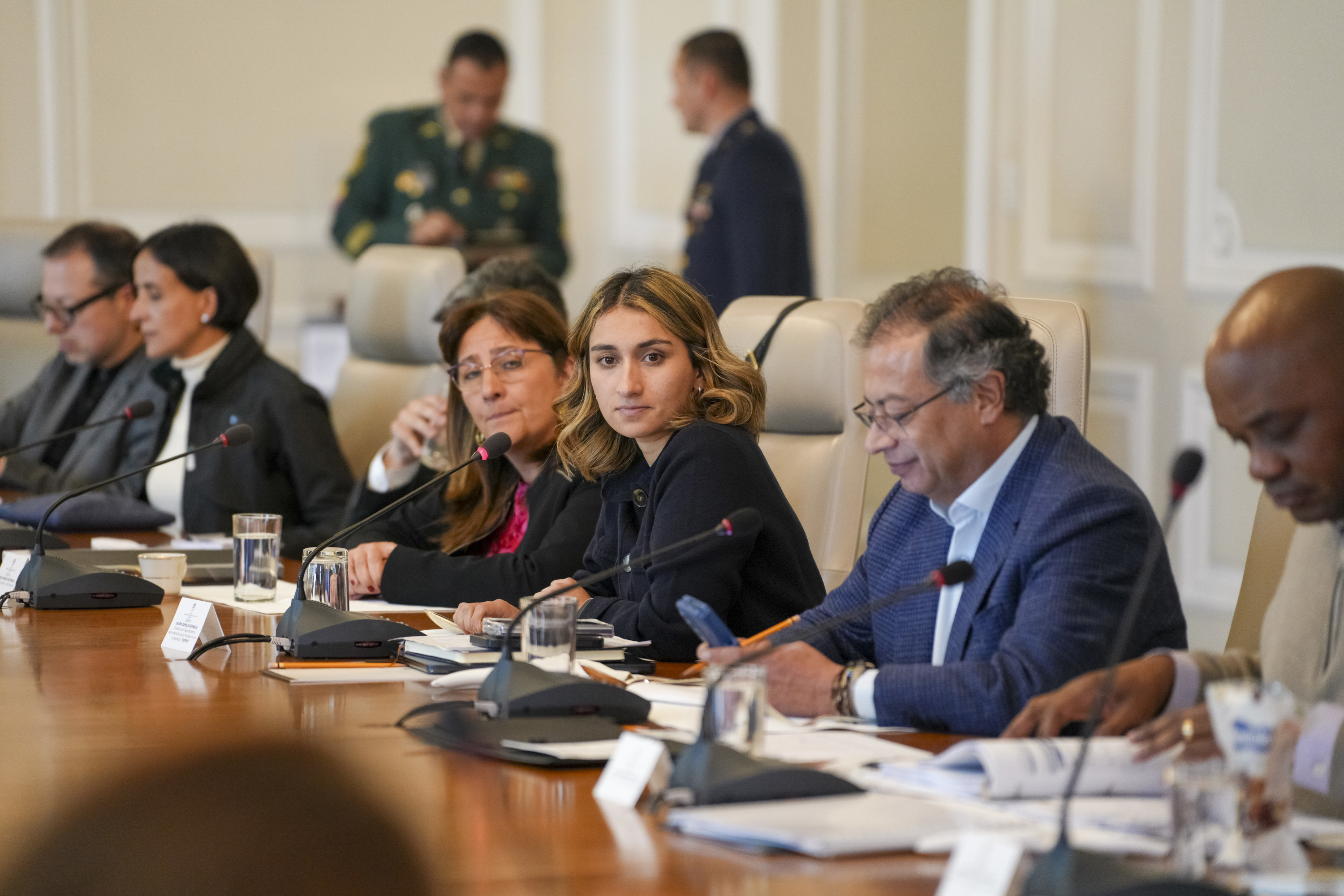The economic and political scenarios for Colombia in the face of a possible escalation of tensions with the United States

For six months, President Gustavo Petro 's government has faced the urgent need to extinguish a fire in its relations with its most important partner in trade, international assistance, and security: the United States.
And it's a fire, like the one last January, fueled by the tone of the Colombian head of state's statements and tweets, which has a counterpart in Washington, President Donald Trump, who is highly volatile in his handling of international relations.
Behind the scenes of this new crisis is President Gustavo Petro's recurring narrative that there is a coup against him, now reinforced by the recordings of the man who was his first foreign minister: Álvaro Leyva. Petro's public statements over the last month led Washington to recall his ambassador in charge in Colombia, John McNamara, for consultations. Petro responded by firing back at Ambassador Daniel García-Peña.
All this, moreover, comes as Foreign Minister Laura Sarabia resigns after just five months in office, just weeks before the White House decides whether or not to certify Colombia's fight against drug trafficking.

Laura Sarabia and President Gustavo Petro at a cabinet meeting. Photo: Presidency
The anti-drug certification, which has historically met with resistance because it is imposed by Washington, is key for the country because not only does it depend on military and police aid (which amounted to around $400 million last year) , but it could also pave the way for the implementation of trade and tariff sanctions that have been used as a diplomatic bludgeon by Trump.
The reality of coca in the country, as former ambassador William Brownfield warned four months ago without a radical adjustment in eradication efforts, points to imminent decertification.
EL TIEMPO consulted with experts from various sectors, who agreed on the call for caution. "At the moment, no measures have been taken to tighten visa requirements for Colombian citizens; however, if the crisis is not resolved quickly, it is a political measure that the United States, in its sovereignty, could take," said Walter Arévalo, professor of constitutional law at the Universidad del Rosario.
For Rafael Piñeros, a professor of International Relations at Externado University, the outlook could even worsen given the character of the two presidents. "The issue of migrants has been the most significant, and as long as there are two rhetorical leaders in both Washington and Bogotá, the spark that raises the profile could be either one," he said.
Along the same lines, Wilfredo Robayo, a professor of international law, warns that the current crisis is on a higher scale than the one in January because the recall of ambassadors is a clear sign that a government is willing to take new steps in diplomatic escalation. In January, the newly appointed Foreign Minister Sarabia, the outgoing Minister Luis Gilberto Murillo, and several figures, including those from the opposition, played to open channels with Washington and to get Petro to tone down his words. The obvious reality is that in a critical scenario, Colombia has much more to lose than the United States ended up prevailing on that occasion.
Now, the two academics agree, the departure of the chancellor—despite her limited experience in diplomatic matters—complicates the situation because institutionally there is no one to represent the nation internationally.

The crisis occurs when there is talk of possible desertification. Photo: Raúl Arboleda. AFP
In January, President Trump made it clear that his differences with Petro would also impact the thousands of Colombians seeking visas to his country, and analysts say that scenario cannot be ruled out under the new circumstances. Colombia is one of the countries with the highest number of requests for tourist visas to the U.S., and the proportion of those denied is also one of the highest in the world.
The economic blow Such a situation could also impact investment, both from the United States and other countries due to a loss of confidence and increased uncertainty about Colombia. It could also impact the price of the dollar, reduce international tourism, reduce remittances from Colombia, impact bilateral trade, reduce the likelihood that U.S. companies will seek direct presence in the country, damage to the country's international image, and make it difficult to combat transnational crimes such as drug trafficking, among others.
"Our foreign trade is a fundamental part of our national accounts. If we disrupt this important part of our relationship with the United States, there could be short- and long-term repercussions. We hope solutions arrive soon, so we don't have to grieve for future issues," said Javier Díaz, president of the National Foreign Trade Association, Analdex.
A study published in April by Anif and the Colombian-American Chamber of Commerce revealed that the country could lose approximately 15,000 jobs in two years and exports could fall by 8 percent due to the impact of the 10 percent base tariff on all domestic exports imposed by the United States. This risk would skyrocket in a scenario of greater confrontation and, consequently, the "big stick" of tariffs.
Luis Fernando Mejía, director of the economic research center Fedesarrollo, notes that the consequences "will depend on whether the United States adopts additional tariff measures. That risk exists, but it's difficult to quantify its potential impact for now."
Experts agree that a solution to a situation like the one that emerged last Thursday is possible if established diplomatic channels are used. "Throughout our history, diplomatic channels have been the appropriate vehicle for addressing differences between both countries, always based on the principle of mutual respect," said María Claudia Lacouture, president of AmCham Colombia.

María Claudia Lacouture, president of AmCham Colombia. Photo: AmCham Colombia
For his part, Bruce Mac Master of Andi insisted on maintaining the country's interests above personal and ideological considerations. "We at the union have reiterated the importance of assuming a responsible and comprehensive approach to the diplomatic relationship between the two countries, avoiding intertwining domestic political and ideological issues with the deep relationship that has been built over the years," he commented.
MARIA ALEJANDRA GONZALEZ DUARTE - Political Editorial with information from Justice and Economy
eltiempo




